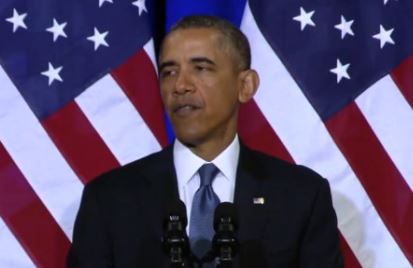
President Obama's speech this Friday outlined the new reforms being adopted by the NSA following recommendations made by a review panel of security experts appointed by the White House itself. These changes arrive seven months after Edward Snowden first began leaking information and caused public outcry from both civilians and the private sector alike.
1.US intelligence agencies will no longer hold Americans' phone call records.
The practice will come to an end under present guidelines, preventing the NSA themselves from withholding phone meta-data. These changes do not eliminate the NSA's ability to obtain the data, but will require the agency to obtain judicial approval from the special court set in place to regulate access. In addition, the NSA is narrowing its search query to within two “hops” from the target, rather than three.
2.There will, nevertheless, be some system for those records to be accessible when required.
This remains unclear. Cited options include creating a third party entity to oversee this data, or requiring service providers keep customer phone records. The Fed will still have access to the data, but not without a court order.
3.The US will no longer monitor the communications of the heads of state or government of “close friends and allies”.
President Obama makes it known that heads of state or “close friends and allies” will be off limits, however it is unclear who is classified as a “close friends” or “allies.” A loophole is in place to revokes this immunity from foreign leaders if “there is a compelling national security purpose,” states Obama. He confirms that gathering information on foreign governments is not a uniquely American practice.
Our intelligence agencies will continue to gather information about the intentions of governments, as opposed to ordinary citizens, around the world in the same way that the intelligence services of every other nation does. We will not apologize simply because our services may be more effective.
4. A new panel will be created to provide additional input into the secret court that oversees the Foreign Intelligence Surveillance Act (FISA), including privacy specialists and other non-government folks.
In other words, President Obama is tasking congress with bringing an outside, independent, perspective in cases handled by the Foreign Intelligence Surveillance Court. The FISC is the governing body that grants surveillance warrants to the NSA and FBI; it was responsible for issuing the warrant that order Verizon to provide initially collect and submit telephone metadata to the NSA. Court actions continue in secret, without public discord, but with some form non-government influence.
5.There will be new rules to extend some of the privacy provisions applying to US citizens to foreigners, unless there's a “compelling national security purpose”.
The President is assuring non-US citizens that they will not be automatically labeled as “persons of interest,” and thereby put under surveillance ― surveillance will only occur if there is a valid concern to national security. Nonetheless, the definition of “national security” remains broad. These rules will take effect in the upcoming months.
While the fate of the reforms ultimately lie in the hands of Congress, security advocates continue to worry that even the proposal moves forward, nothing will ultimately change. Digital-communication monitoring through programs like PRISM continue to remain unaddressed. But more importantly, an assurance is needed that the NSA will abide by the law in the first place, and if not, that proper disciplinary action is enforced.
Via Washington Post
Advertisement
Learn more about Electronic Products Magazine





